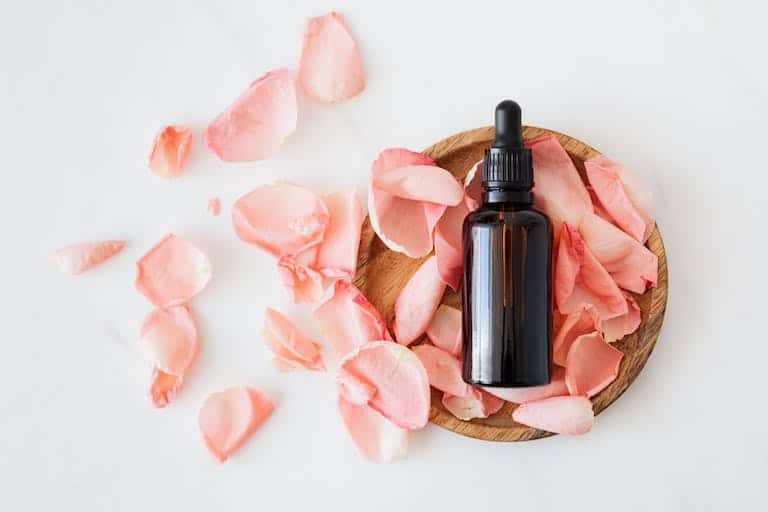Vitamin C is a powerful antioxidant that offers numerous benefits for the skin. It plays a crucial role in the production of collagen, which helps maintain skin elasticity and firmness. Additionally, it protects the skin from environmental damage and can help reduce the appearance of dark spots and hyperpigmentation. Due to its versatile properties, vitamin C serum can be beneficial for various skin types, including both dry and oily skin.
For individuals with dry skin, vitamin C serum helps by promoting hydration and improving skin texture. Its ability to boost collagen production leads to increased skin firmness, which can minimize the appearance of fine lines and wrinkles often associated with dry skin. On the other hand, oily skin can also benefit from vitamin C, as it helps to regulate sebum production and balance oiliness, while also targeting common concerns like enlarged pores and acne.
In conclusion, incorporating vitamin C serum in skincare routines can greatly benefit both dry and oily skin types, as it addresses their unique concerns while also providing overall skin health improvements. It’s essential, however, to choose a product formulated to suit one’s specific skin type in order to achieve the best results.
Vitamin C for Different Skin Types
Vitamin C serum for Dry Skin
Vitamin C is known for its antioxidant properties and ability to boost collagen production, making it suitable for various skin types, including dry skin. People with dry skin can benefit from incorporating a vitamin C serum with a concentration of around 15% in their skincare routine. Usually higher concentration Vitamin C serums often are oil based to stabilize the Vitamin C, this also results in a very moisturizing serum. However, if you have sensitive skin, a lower concentration, oil based Vitamin C Serum would be a great option for dry skin because it is has a concentration of 5% Vitamin C. In particular, we found the Dear Klairs Fresh Juiced Vitamin Drop to be very moisturizing and perfect for people with dry skin.
Dear Klairs Freshly Juiced Vitamin Drop

For dry and sensitive skin, it is essential to look for products that offer additional hydration and soothing ingredients. A moisturizer containing vitamin C, hyaluronic acid, and ceramides will aid in maintaining the skin’s moisture barrier and hydration levels. This combination will help to combat dryness, improve skin texture, and contribute to a radiant complexion.
Vitamin C for Oily Skin
When it comes to oily skin, vitamin C can be beneficial in controlling sebum production and reducing the appearance of acne. Oily skin types should opt for a lower concentration of vitamin C, around 5% to 10%, to avoid potential irritation.
A light, gel-based serum with added ingredients like niacinamide can help regulate sebum levels and counteract the effects of oily skin. For individuals prone to acne, vitamin C serums also offer anti-inflammatory properties that aid in reducing the redness and inflammation caused by acne. There are also water-based moisturizers that contain vitamin C that feel very lightweight and enjoyable to use for people with oily, acne-prone skin as well.
This is one particular moisturizer that contains Vitamin C, is light enough for acne prone skin, and even comes with a Red LED Device which is amazing because it is quite affordable if you’ve been looking to add a Red LED Device to your routine.
Vita Real Toning Laser Cream

Remember to opt for a non-comedogenic, oil-free moisturizer to avoid clogging the pores and exacerbating oily skin issues. Incorporating a vitamin C product alongside other skincare essentials for your skin type will result in a well-rounded routine that addresses specific concerns, keeping the skin balanced and healthy.
Choosing the Right Vitamin C Product

Understanding the Formulation
When selecting a vitamin C product, it is vital to consider the right formulation for your skin type. For oily or normal skin, L-ascorbic acid is the most potent and beneficial form of vitamin C, while for dry and sensitive skin, magnesium ascorbyl phosphate or ascorbyl palmitate are gentler and more suitable alternatives ¹.
Evaluating the Potency and pH Levels
Vitamin C serums come in varying concentrations, some formulas offer as low as 5% and others as high as 20% or more. When choosing a serum, consider the potency in relation to your skin’s sensitivity and needs:
- Below 10%: Ideal for sensitive skin or first-time users
- 10-20%: Balanced for normal to oily skin, providing noticeable results
- Over 20%: Potent, but may cause irritation for sensitive skin or first-time users
In addition to potency, consider the pH level of the product. L-ascorbic acid is most effective at a pH between 2.5 and 3.5. However, a lower pH may increase the risk of irritation for sensitive skin.
Considering the Packaging and Stability
Vitamin C is notoriously unstable, making packaging and stability crucial when selecting a product. Exposure to air, light, and heat can significantly affect the integrity of the vitamin C. To ensure the longest shelf life and maximum effectiveness, consider serums with the following characteristics:
- Opaque and air-tight packaging
- Products that come in two separate vials, allowing you to “activate” the vitamin C yourself ³
- Dark-colored bottles or packaging with UV protection
Lastly, be mindful of the price. While luxury and high-end serums can offer excellent quality and performance, lower-priced options may deliver comparable results. Evaluate the formulation, potency, pH levels, and packaging to find the best vitamin C product for your specific skin type and budget.
Benefits of Vitamin C for the Skin
Antioxidant Properties
Vitamin C is known for its powerful antioxidant properties which help protect the skin from free radicals, sun damage, and pollution. These factors contribute to aging, wrinkles, and fine lines. By neutralizing free radicals and reducing oxidative stress, vitamin C helps maintain healthy, youthful-looking skin.
Promotion of Collagen Production
A major benefit of vitamin C is its role in promoting collagen production. Collagen is essential for maintaining skin elasticity and firmness. With age, collagen production naturally decreases, leading to wrinkles and sagging skin. Topical application of vitamin C can stimulate collagen synthesis, thereby improving skin texture and reducing the appearance of fine lines.
Reduction of Pigmentation and Discoloration
Vitamin C has also been recognized for its ability to regulate pigmentation and reduce skin discoloration. It inhibits the production of tyrosinase, an enzyme involved in melanin formation, which prevents hyperpigmentation. Vitamin C specifically targets abnormal melanin deposits caused by excessive sun exposure, without affecting normal skin coloration. This results in a more even skin tone and a reduction in the appearance of dark spots.
Incorporating vitamin C into your skincare routine offers multiple benefits for all skin types, whether it’s oily or dry. By protecting the skin from environmental stressors and promoting both collagen production and a more even complexion, vitamin C can help maintain a youthful and radiant appearance.
How to Use Vitamin C in Your Skincare Routine
Application Tips for Vitamin C
To reap the benefits of Vitamin C for any skin type, be it dry or oily, follow a proper skincare routine that includes cleansers, toners, and serums. Start by applying a cleanser on your face to remove dirt and makeup residue, followed by a toner that can help restore the skin’s pH balance.
For optimal results, use Vitamin C in its serum form. A topical vitamin C serum effectively tackles various skincare issues like hyperpigmentation, premature aging, and uneven skin tone due to its potent antioxidant properties. Before incorporating it into your daily routine, perform a patch test to ensure there are no adverse reactions.
To apply the serum, follow these simple steps:
- Cleanse and tone your face as usual.
- Take a few drops of the vitamin C serum onto your fingertips or a cotton pad.
- Gently pat and spread the serum over your face, avoiding the eye area.
- Wait for the serum to be absorbed before moving on to the next step.
After applying the serum, you should consider using a moisturizer with hyaluronic acid and a sunscreen with an adequate SPF to protect your skin from UV rays.
Pairing Vitamin C with Other Skincare Products
When using Vitamin C in your skincare routine, it’s crucial to know which products can be effectively paired with it. Some ingredients, like niacinamide and retinol, can disrupt the effectiveness of vitamin C if used together; in such cases, apply these ingredients at different times of the day. For example, you may use Vitamin C in the morning and retinol at night.
On the other hand, Vitamin C works well with hyaluronic acid to provide additional hydration and avoid any dryness or irritation. It can also be used in combination with a sunscreen to enhance protection against sun damage. Remember to always choose products that are compatible with your skin type and desired outcome.
Precautions and Side Effects of Vitamin C
Identifying Potential Irritation and Allergies
Vitamin C is generally safe for most skin types. However, it is still important to be cautious, particularly for those with sensitive skin who may experience irritation. To check whether you are sensitive to a particular product, it is advised to perform a patch test. Apply a small amount of the product on the inside of your arm or behind your ear, waiting for 24 hours to check the reaction. If irritation or redness occurs, discontinue the product.
Aside from potential irritation, some people may experience an allergic reaction to vitamin C which can manifest as rashes or swelling. If these symptoms occur, immediately stop the product usage and consult a dermatologist for further advice.
Adjusting to Vitamin C Usage
For those who have not previously incorporated vitamin C into their skincare routine, some acclimation may be required. Gradually introduce the product by using it two to three times a week, increasing the frequency as your skin adjusts.
During the initial period, some mild discomfort may be experienced. However, if the irritation persists or worsens, stop the product usage and seek professional advice. In some cases, it may be necessary to switch to a lower concentration of vitamin C, allowing the skin to adapt to the new product.
Remember, everyone’s skin is different, and it is essential to pay attention to how your own skin reacts to any products containing vitamin C. In case of concerns, always consult with a dermatologist for personalized advice and guidance.
Overall, staying aware of your skin’s reactions and seeking professional help when needed can help ensure that using vitamin C has a positive impact on your skincare routine, whether you have dry or oily skin.
Frequently Asked Questions
Can vitamin C serums be used for both dry and oily skin types?
Yes, vitamin C serums can be used for both dry and oily skin types. Vitamin C is a powerful antioxidant that can provide numerous benefits for the skin, including brightening the complexion, reducing the appearance of dark spots, and promoting collagen production. It is suitable for all skin types, as it helps to balance the skin’s natural oil production.
What are the benefits of vitamin C serum for oily skin?
For oily skin, vitamin C serum can provide various benefits, such as reducing excess sebum production, refining enlarged pores, and minimizing the appearance of acne scars. Additionally, vitamin C has anti-inflammatory properties that may help to reduce inflammation associated with acne breakouts on oily skin.
How does vitamin C cream benefit dry skin?
Vitamin C cream can help to hydrate and nourish dry skin by promoting collagen production and improving the skin’s natural barrier function. This not only helps to retain moisture but also contributes to a more youthful and plump appearance. Moreover, vitamin C can help to decrease redness and irritation that may be present with dry skin conditions.
What is the best form of vitamin C for acne-prone skin?
For acne-prone skin, a stable form of vitamin C, such as magnesium ascorbyl phosphate or sodium ascorbyl phosphate, is recommended. These forms are gentler on the skin and less likely to cause irritation while providing effective antioxidant benefits. Some studies have shown that there is very little difference between the absorption rates of different types of vitamin C.
Is a hydrating effect commonly experienced with vitamin C serums?
A hydrating effect is not the primary benefit of vitamin C serums, but some formulations may include additional ingredients, such as hyaluronic acid or natural oils, to provide hydration and enhance the skin’s overall health and appearance. Vitamin C serums may provide brightening and anti-aging benefits, while also indirectly improving skin hydration by fortifying the skin’s natural barrier function and promoting collagen production.






